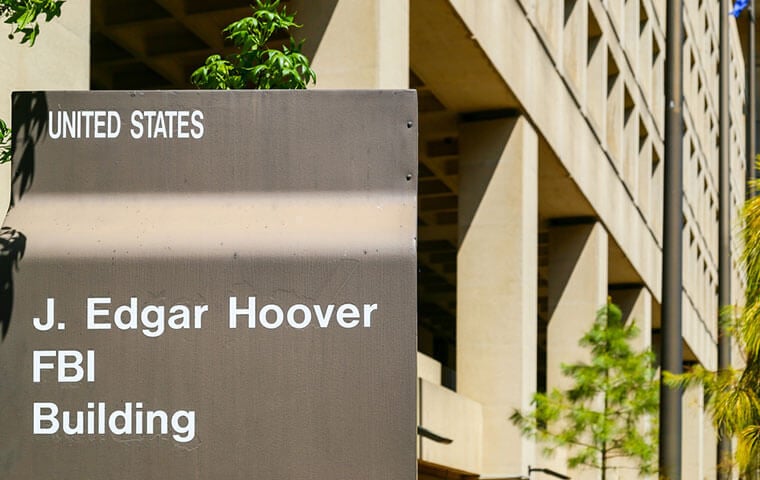 Image: Michael Rosebrock/Shutterstock.com
By: FEDweek Staff
Image: Michael Rosebrock/Shutterstock.com
By: FEDweek StaffFBI employees who are accused of sexual misconduct often resign or retire before formal charges can be made against them but for those who don’t, the penalty typically is less severe for higher-level employees than it is for lower-level employees for similar misconduct, Sen. Charles Grassley, R-Iowa, has said.
Grassley, a long-time advocate for federal whistleblowers and the ranking Republican on the Judiciary Committee, said those patterns are shown in internal FBI documents he received through whistleblower disclosures and “call into question the effectiveness of the FBI’s response to sexual misconduct by its employees.” Grassley has not released the documents publicly however.
He said that one document shows that over 2004-2020, 665 FBI employees, including 45 at the SES level, retired or resigned following internal investigations by the FBI or the Justice Department IG but prior to the issuance of a formal disciplinary action. That does not count the number who resigned or retired before or during the investigations, he added, “so the actual number of employees who departed the FBI following allegations of sexual misconduct could be much higher.”
He quoted the second document as saying that a zero-tolerance policy for sexual harassment issued in 2020 has resulted in “random penalties and disparate treatment.” There are several possible grounds for charges to be brought in such cases, and the report found that “the only discernable pattern” appears to be that lower-level employees are more likely to be charged under rules that provide for stricter penalties including firing, Grassley said.
He said in a letter to the Justice Department, “Simply put, these two documents show a systemic failure within the Justice Department and FBI to protect female employees from sexual harassment and sexual misconduct in the workplace and a failure to sufficiently punish employees for that same misconduct. FBI employees should not have to suffer under daily abuse and misconduct by their colleagues and supervisors.”
Decisions on Federal Workplace Issues Remain Before Congress
At FBI, the Higher the Level, the Lesser the Penalty for Sexual Misconduct, Senator Says
Reminder on Revised Leave Policies for Voting
Review of Marijuana Policy Could Have Implications for Federal Workplace
Enrollee Share of FEHB Premiums to Rise 8.7 Percent on Average for 2023
OPM Addresses Drivers of Premium Hikes, Upcoming Coverage Changes in FEHB
Effort to Ban a New Schedule F Ratchets Up in Congress
Administration Urged to Extend Waiver in Loan Forgiveness Program
See also,
Employees Value TSP, Annuity, FEHB Most Highly, Survey Finds
Did FERS Actually End the CSRS “Golden Handcuffs” Effect?
Report Assesses Impact of Repealing Windfall, Offset Provisions
With FERS Annuity Indexed for Inflation, Fed Retirees Faring Better

